Nội Dung Chính
- 1 SPEAKING Work in pairs. What do you understand by the term 'sibling rivalry'? Why do you think it can happen?
- 2 Read the text and compare your ideas from exercise 1.
- 3 Read the Listening Strategy. Then listen and write down the sentences you hear.
- 4 Read the Pronunciation box. Listen again and repeat the examples.
- 5 Match each sentence you wrote down in exercise 3 with a point in the Pronunciation box.
- 6 Read the sentences (1-6) aloud. Each contains one feature of fast speech from the Pronunciation box. Can you say where in the sentence it occurs?
- 7 Listen, check and repeat.
- 8 Listen to a monologue and two dialogues. For questions (1-3), choose the correct answers (a–c).
- 9 SPEAKING Work in pairs. Discuss this quotation from a famous British writer. What does it say about sibling relationships? Do you agree with its message?
(Page 15)
I can understand a discussion about sibling rivalry.
1 SPEAKING Work in pairs. What do you understand by the term 'sibling rivalry'? Why do you think it can happen?2 Read the text and compare your ideas from exercise 1.
3 Read the Listening Strategy. Then listen and write down the sentences you hear.1 ......................................................................................................................................... 2........................................................................................................................................... 3............................................................................................................................................ 4............................................................................................................................................ 4 Read the Pronunciation box. Listen again and repeat the examples.
5 Match each sentence you wrote down in exercise 3 with a point in the Pronunciation box.6 Read the sentences (1-6) aloud. Each contains one feature of fast speech from the Pronunciation box. Can you say where in the sentence it occurs?1 I've got two or three dictionaries. (point 1) 2 Is this your address? (point 1) 3 I've got a bad cough. (point 2) 4 We went ten-pin bowling. (point 2) 5 She's my best friend. (point 3) 6 This coffee tastes bad. (point 3) 7 Listen, check and repeat. |
Sibling rivalry
8 Listen to a monologue and two dialogues. For questions (1-3), choose the correct answers (a–c).1 What has helped the girl improve her relationship with her sister? a Spending time with each other rather than with friends. b Strengthening her sister's relationship with their mother. c Discussing why her sister used to behave unkindly. 2 What does the boy accuse his sister of lying about? a Whether she has taken something from his room. b Whether she has only just written her name on something. c Whether she asked permission before borrowing something. 3 What do the brothers explain to the interviewer? a Why they didn't get on when they were younger. b Which brother behaved worse while growing up. c Why they always spoiled each other's things. 9 SPEAKING Work in pairs. Discuss this quotation from a famous British writer. What does it say about sibling relationships? Do you agree with its message?'It snowed last year too: I made a snowman and my brother knocked it down and I knocked my brother down and then we had tea. Dylan Thomas |

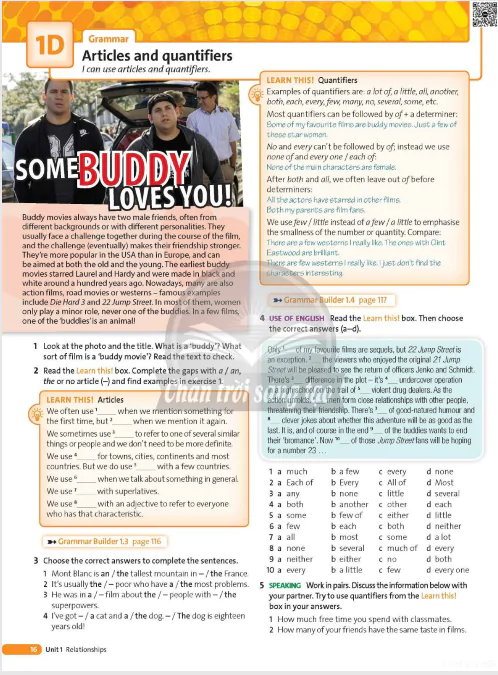
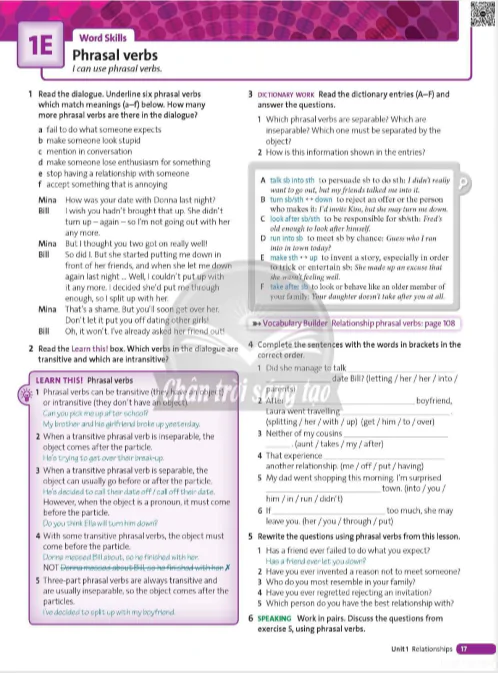
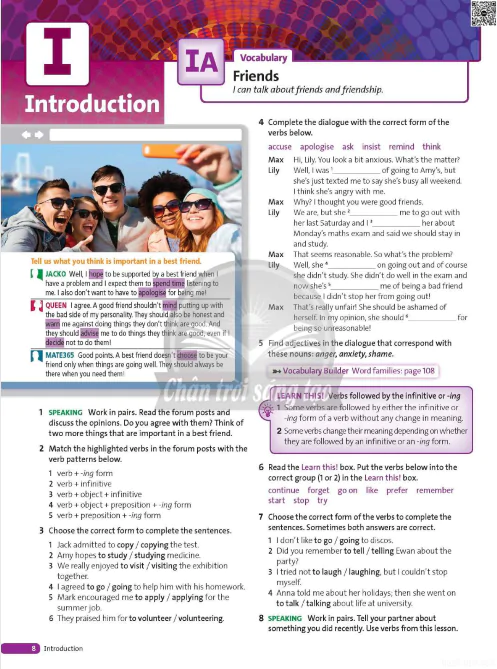
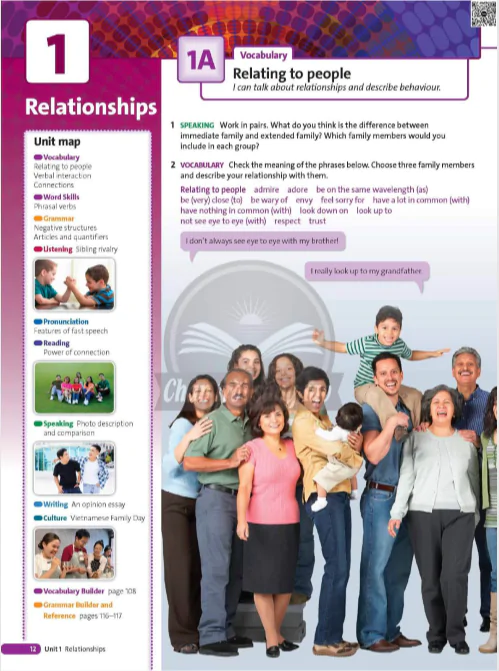
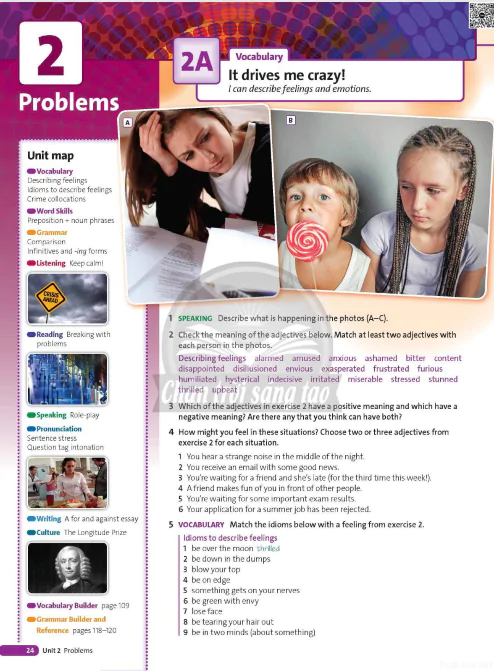
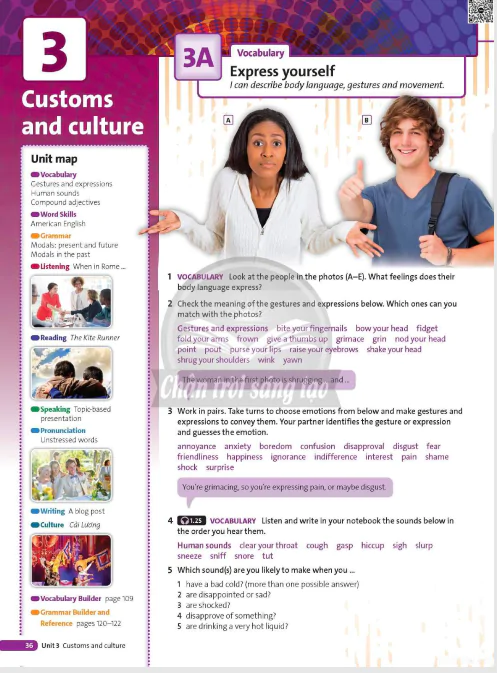
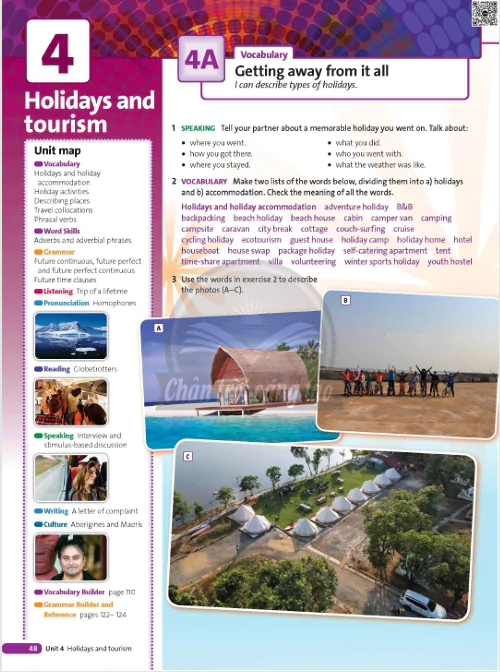
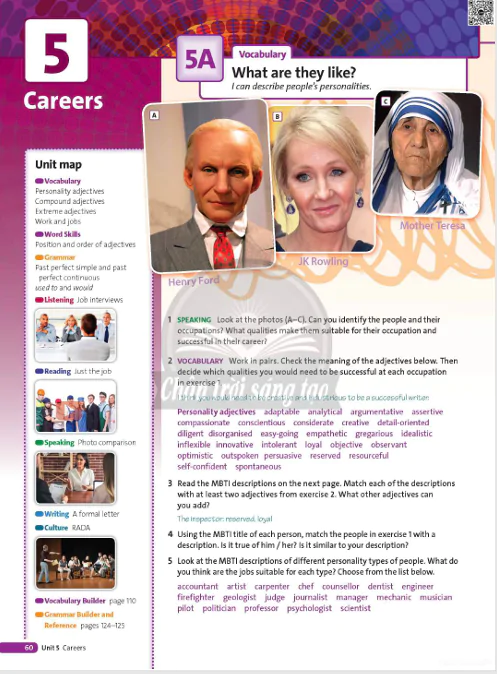
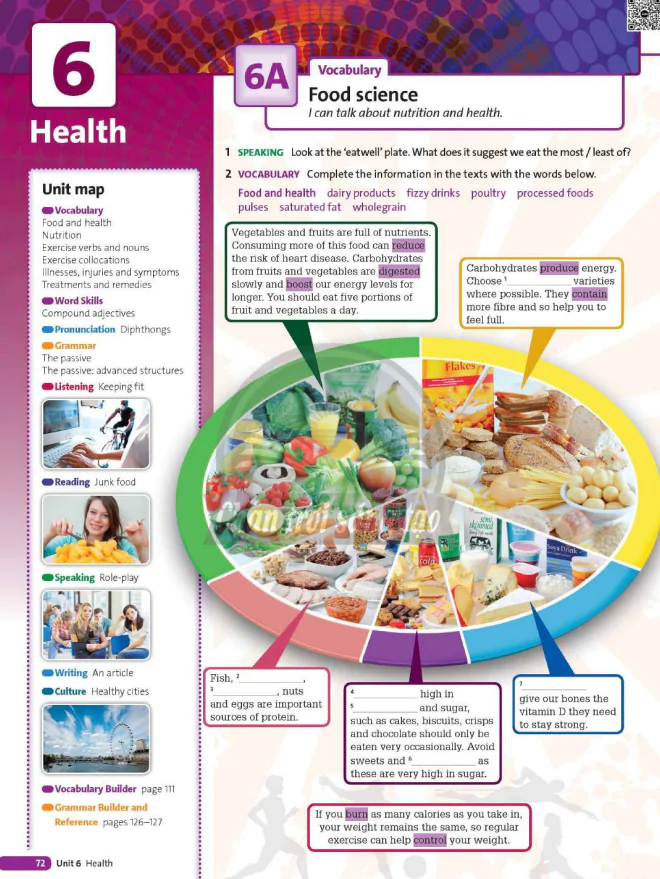


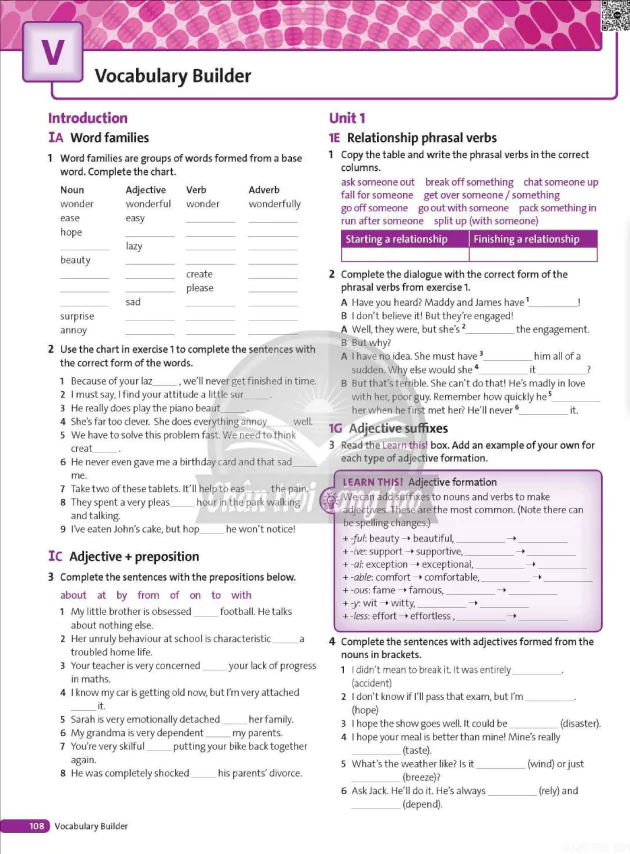
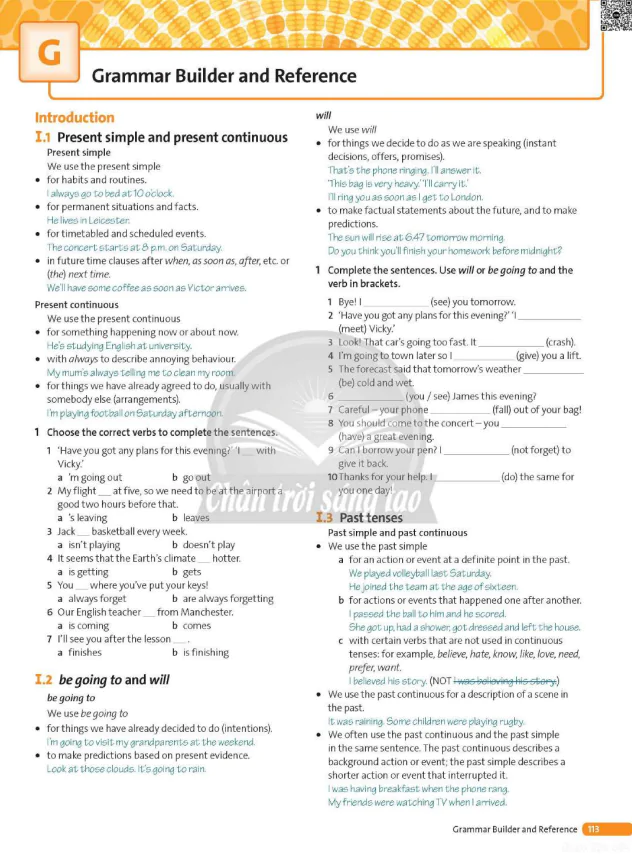









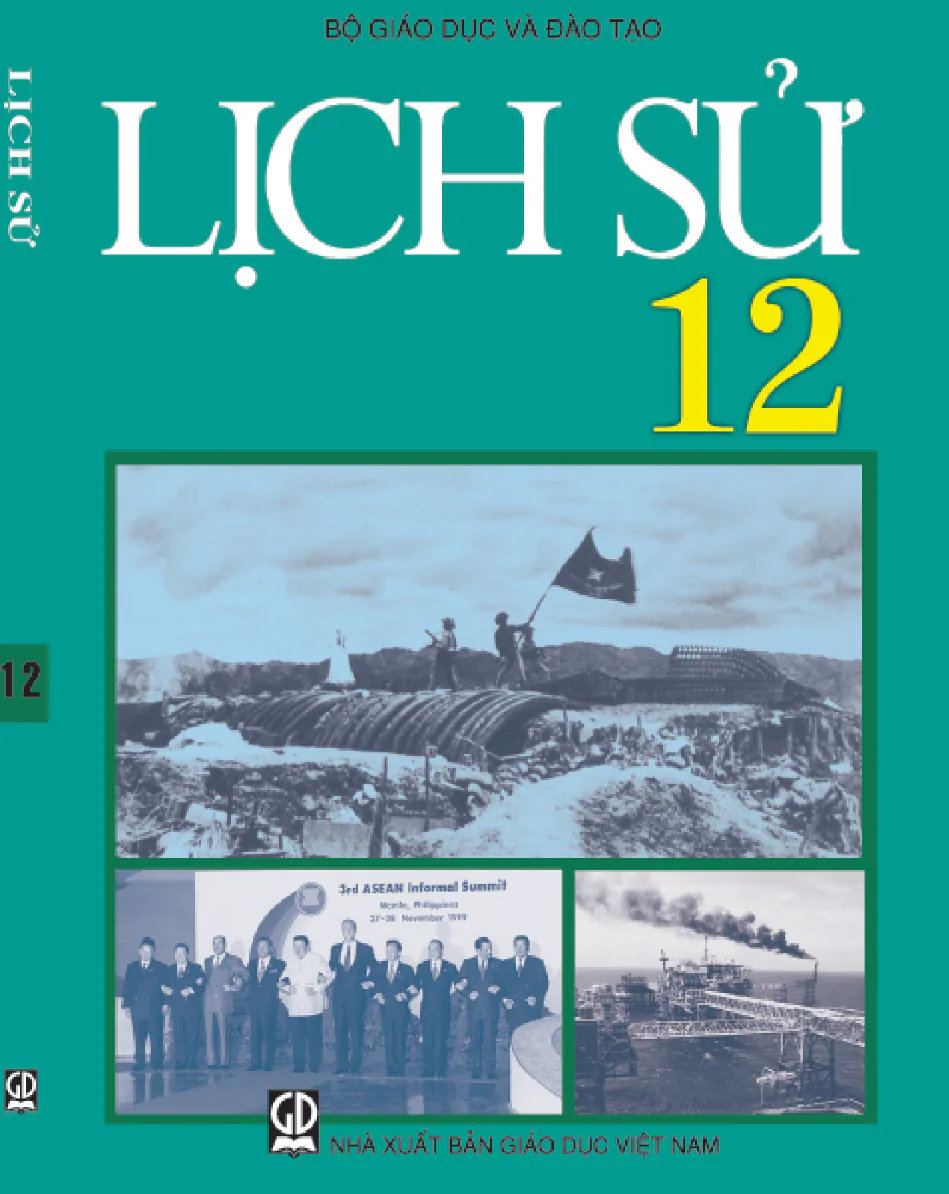
























Bình Luận
Để Lại Bình Luận Của Bạn